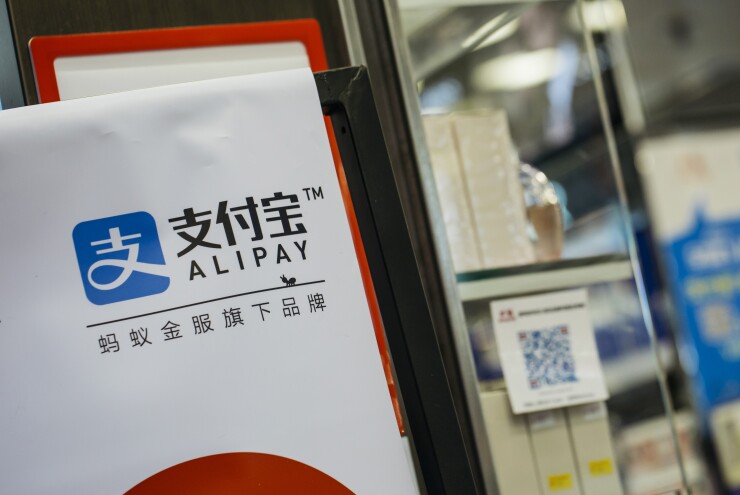Jack Ma’s Ant Financial Services Group has deep enough pockets to win the bidding war against Euronet Worldwide for MoneyGram, but money may not be the deciding factor in this deal.
If China-based Ant can clear the proper regulatory hurdles, it may prevail because the deal makes strong strategic sense for both sides.
Leawood, Kan.-based Euronet also has had a longstanding interest in buying the remittance company, but for Ant Financial there is more urgency, because MoneyGram fits perfectly into its global game plan for cross-border payments.

Ant
Ant offered in January of $13.25 a share to $15, but Euronet countered in March with a higher offer and an assertion that, since it and MoneyGram are both U.S. companies, it would have an easier time getting the deal approved by regulators.
In addition to offering a better price, Ant Financial on Sunday confirmed its plans to keep MoneyGram has an independent subsidiary, retaining its brand, management team and IT infrastructure at MoneyGram's Dallas headquarters.
“As part of Ant Financial, Moneygram will have access to resources to further enhance its technology, systems and anti-money laundering and compliance programs,” Doug Feagin, Ant Financial International’s president, said in its announcement.
Ant Financial sees an opportunity to expand MoneyGram’s reach and accelerate its growth to serve Ant’s 630 million users globally. Ant recently
MoneyGram’s mature remittance network includes 350,000 locations in 200 countries in a market that’s rapidly changing. Ant operates Alipay, the digital payment affiliate of Alibaba; and has been aggressive in pursuing new channels such as
Ant's culture could reinvigorate MoneyGram, which just two years ago reported losses amid rising pricing competition from tech-savvy startups like TransferWise and WorldRemit. Amid that uncertainty, rumors circulated that
Ant last week
“The road ahead for MoneyGram remains highly uncertain in our view,” said Michael Brown, Euronet’s chairman and CEO, in a statement on Monday. “In light of bipartisan concerns that have been raised by four members of Congress, extensive public reports examining questionable data security practices of Ant Financial and broad concern raised over Chinese-based acquirers, we continue to hold the view that the Ant deal may never close.”
Ant now seems confident it will obtain regulatory approval, noting that it’s already won U.S. antitrust clearance.
The biggest hurdle will be clearing the Committee on Foreign Investment (CFIUS), which examines acquisitions for national security risks. In addition to the CFIUS, President Trump could quash the deal.
Euronet also may once again counter Ant’s deal, though its statement suggests it’s focusing more on spotlighting any possible flaws in Ant’s proposed deal for MoneyGram.
Euronet said Ant Financial has called lawmakers’ questions about the deal “phantom national security concerns,” but in its statement today Euronet itemized concerns by lawmakers about Chinese companies' data-security practices.
Among them, Euronet cited U.S. Reps. Robert Pittenger, (R-N.C.) and Chris Smith (R-N.J): "The Chinese government is a significant shareholder of Ant Financial, with an approximate 15% stake. Should this transaction be approved, the Chinese government would gain significant access to, and information on, financial markets and specific international consumer money flows...we must fully examine how the MoneyGram network may be used by the Chinese government to target these voice."





